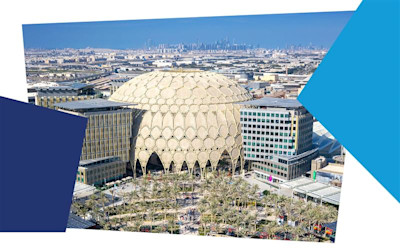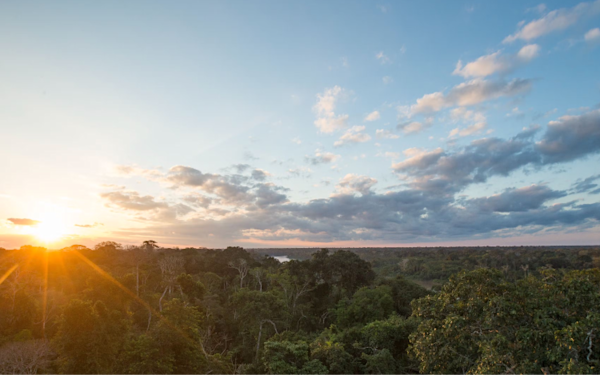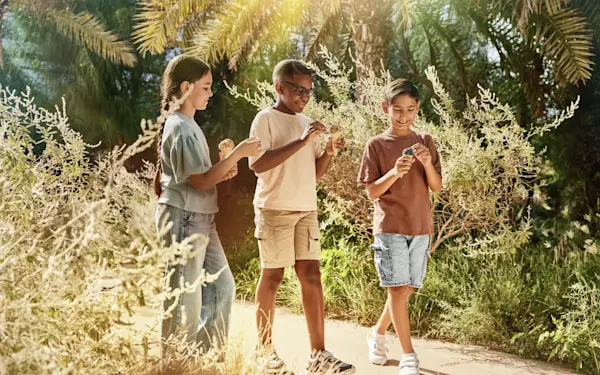![SeedsofChange Inititive 2]()
Raya Biodiversity Reserve, Indonesia
Protecting 65,000 hectares of peat swamp, home to one of the last remaining wild populations of orangutans on earth.
![SeedsofChange Inititive 1]()
Tambopata-Bahuaja Biodiversity Reserve, Peru
Conserving rainforests in an internationally recognised biodiversity hotspot of the Peruvian Amazon, providing habitat for rare and endangered wildlife.
Put simply, carbon or greenhouse gas (GHG) emissions are the gases released into the air when we use energy sources like fossil fuels. These gases contribute to visible air pollution which damages our health and the health of our planet. In addition, as these emissions blanket the Earth, they trap the sun's heat. This leads to global warming and climate change, which refers to a large-scale, long-term shift in the planet's weather patterns and average temperatures.
Carbon offsetting is a form of climate action that is used to compensate for emissions that can’t yet be avoided. This is done by understanding when an action has a negative impact, such as a flight, and compensating for it by making a positive impact on the environment, such as investing in climate projects that remove a similar amount of carbon from the atmosphere or avoid emissions.
The amount of greenhouse gases emitted by an individual’s activity is called a carbon footprint (or sometimes just “measured emissions”). Once you know your footprint, you can purchase the equivalent amount of carbon credits – ‘offsetting’ your footprint.
While carbon offsetting will not directly negate the effects of the emissions caused by an activity, roughly the same amount of carbon emitted is now removed from the atmosphere or is being avoided from being released in the first place. What's more, high-quality climate projects offer many co-benefits, such as preserving biodiversity and supporting indigenous communities, so you know you are making the world a little better.
A carbon credit is a unit of measurement used when carbon offsetting. It represents the avoidance or removal of one metric tonne of greenhouse gases (GHG) from the atmosphere.
Carbon credits are issued once a climate project is developed, monitored, verified and certified as a legitimate carbon offset project by a recognised standard such as the Gold Standard or Verified Carbon Standard.
The price of carbon credits can vary depending on factors such as the project type and market demand.
The purchase of carbon credits is a financial incentive for the continuation and expansion of these projects, allowing them to make a tangible and measurable impact on the environment.
Revenue generated from carbon credit sales is used to finance and support these projects through project development, operational expenses, related community initiatives and supporting project expansion as appropriate.
Expo City works with CarbonClick, which helps businesses and individuals take meaningful climate action with simple and transparent carbon offsetting.
CarbonClick’s platform enables companies and individuals to tackle emissions that cannot yet be reduced by facilitating the offset of carbon via highly vetted climate projects that align with the global Sustainable Development Goals.
CarbonClick provides end-to-end transparency to both businesses and consumers, ensuring everyone engaged is able to see the direct impact of the offsetting.
Headquartered in New Zealand, CarbonClick has achieved B Corp certification for its commitment to using business as a force for good, meeting and maintaining the highest standard of social and environmental impact. More information can be found here: www.carbonclick.com
CarbonClick puts a great level of care into selecting, auditing and monitoring the climate projects they source carbon credits from. In addition to selecting projects that are verified by a recognised registry, such as Gold Standard, CarbonClick applies its 7-Point Impact Check to ensure the project makes a meaningful difference to the planet and people.
All carbon credits that are purchased via Expo City Dubai are then permanently retired, meaning they cannot be traded or reused, ensuring a real, positive impact on the climate today, and negating the risk of double-counting by any organisation or individual Expo City Dubai engages with.
A recognised carbon standard, also known as a carbon registry, is a system that keeps track of carbon credits and allows for their sale to organisations or individuals seeking to offset their own emissions. The system ensures that each credit is counted only once and provides a reliable record of emission reductions, promoting integrity and credibility in carbon markets.
In addition to selecting projects that are verified by a recognised registry, such as Gold Standard, CarbonClick reviews seven criteria to ensure the project makes a real impact.
- Additionality: This is the most defining criterion. Simply put, it means the emission reduction can only happen due to the project being implemented in the first place. And without carbon finance, it would not have happened
- Accuracy (over-crediting): The project’s emission removal or avoidance is accurately measured
- Permanence: The project stores or removes carbon for a long period of time
- Perverse incentives: The project or the income from selling the carbon credits issued by the project does not create a perverse incentive that leads to actions that could worsen the climate crisis (such as incentivising landowners to excessively harvest an existing forest if there is potential for its regeneration to qualify for the sale of carbon credits)
- Double counting: Ensuring project credits are only issued and counted once
- Positive community impact: The project has additional co-benefits to improve social, economic and environmental outcomes in the local area. With this in mind, the project should align with at least three of the global Sustainable Development Goals (SDGs). Common goals that projects contribute towards are No Poverty, Good Health and Wellbeing, Gender Equality, Clean Water and Sanitation, Climate Action and Affordable and Clean Energy
- Monitoring and evaluation: The project has robust monitoring and verification policies to ensure it continues to meet requirements
A strong reduction strategy should be the priority for all organisations. The correct process is to measure, reduce and only then offset residual (unavoidable) emissions. While some reduction can be achieved through operational efficiencies, switching to renewable energy sources, reducing waste or reducing travel, others rely heavily on technological advancements that will only be widely accessible in a matter of years and decades – and we don’t have decades to tackle the climate emergency.
High-integrity carbon offsetting is therefore an important tool for any decarbonisation strategy, offering a way to combat unavoidable emissions right now.





